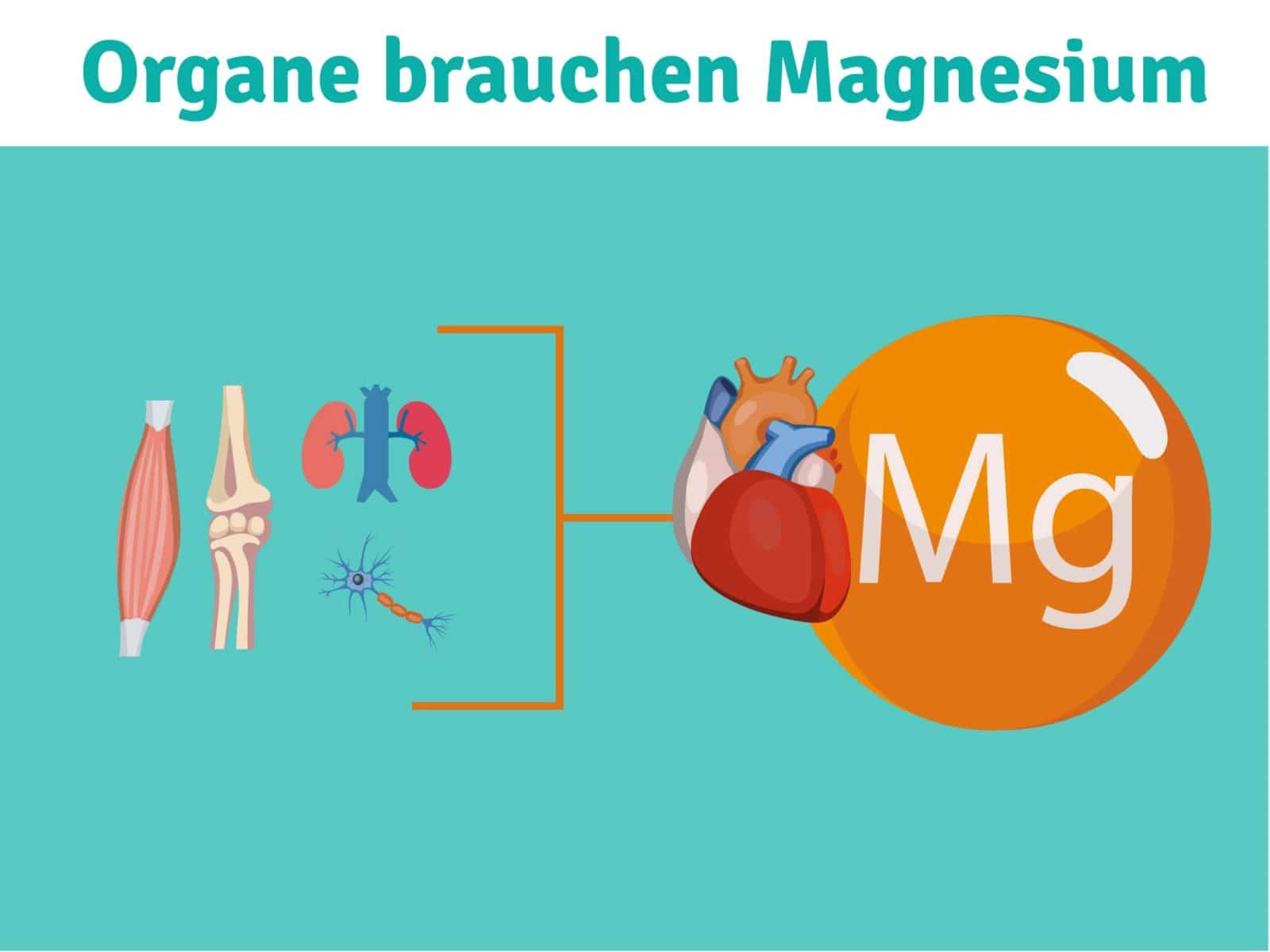Of course, the damaging effects of sugar are well known and it goes without saying that we know how important exercise is in lowering blood sugar levels. High-quality fats, avoiding nicotine and alcohol, getting enough sleep and leading a healthy lifestyle all help to keep the body healthy and prevent type 2 diabetes mellitus.
But what happens if your blood sugar level is in the critical range despite a healthy lifestyle with a balanced diet and sufficient exercise?
On World Diabetes Day, we give you some tips so that you can enjoy a long and carefree life - as free from diabetes symptoms as possible.
 Please note that the first signs of a magnesium deficiency should be clarified by a doctor:
Please note that the first signs of a magnesium deficiency should be clarified by a doctor:
Statistics and risk factors
According to German Diabetes Aid, more than 6 million people currently live with diabetes in Germany, more than 90% of whom suffer from type 2 diabetes mellitus. This is an increase of 38% compared to 1998. Every day, almost 1,000 more people fall ill with this insidious disease. Familial predisposition, obesity and lack of exercise are cited as risk factors. According to the latest findings, a deficiency of the mineral magnesium increases the risk of developing diabetes. Many studies have shown a reduced magnesium level in the blood of type 2 diabetics. One cause of this deficiency is the increased excretion via the kidneys as a result of the increased blood sugar level, which can lead to a loss of magnesium. On the other hand, many diabetics avoid carbohydrate-rich foods such as wholegrain products or pulses, which have a high magnesium content. Digression: What happens in the body's cells in type 2 diabetes mellitus?
Digression: What happens in the body's cells in type 2 diabetes mellitus?
In a healthy body, the pancreas produces enough insulin so that the sugar (glucose) from food can be absorbed into the body's cells. There, the glucose is used together with oxygen to produce energy. If the blood sugar level is latently elevated, the cells respond less and less well to insulin - resulting in what is known as insulin resistance. The blood sugar can no longer be optimally absorbed by the cells. As a result, there is a lack of energy and the sugar level in the blood remains elevated. The red blood cells (erythrocytes) become "sugared", which can be recognized in the blood count by an increased HbA1c value ("long-term sugar value"). The pancreas has to produce more and more insulin in order to achieve the desired effect. After a certain time, this permanently high output leads to exhaustion of the pancreas (pancreatic insufficiency) and thus to an absolute insulin deficiency. This leads to a disruption of the body's own regulatory system for controlling blood sugar levels. Increased blood sugar levels can lead to damage to nerves and blood vessels, resulting in visual disturbances, discomfort and pain in the feet and hands, as well as kidney damage.
Supporting the body with a balanced magnesium supply
Magnesium can increase the insulin sensitivity of the cells and improve the absorption of glucose from the blood into the cells. It therefore plays a central role in preventing insulin resistance. An adequate intake of magnesium is an important preventive measure, especially in times of increased magnesium requirements such as during pregnancy and breastfeeding, during intensive physical activity in sport or at work and in times of high mental tension and stress. Various drugs and medications such as diuretics, gastric acid blockers (proton pump inhibitors) or laxatives can interfere with the magnesium balance. Ask your doctor or pharmacist for advice on this. Please note that the first signs of a magnesium deficiency should be clarified by a doctor:
Please note that the first signs of a magnesium deficiency should be clarified by a doctor:
- Calf cramps,
- eyelid twitching,
- tingling in the fingers or
- tiredness
What is the best way to absorb magnesium?
The daily dose recommended by the German Nutrition Society (DGE) for adults is 300 to 400 mg, depending on age and gender. It is generally advisable to obtain magnesium from a balanced diet. Recommendations for magnesium-rich foods (per 100 g, unless otherwise stated):- Pumpkin seeds: approx. 500 mg
- Sunflower seeds: approx. 400 mg
- Cashew nuts: 250 mg
- Soybeans: approx. 220 mg
- Healing water (per liter): approx. 100 to 300 mg
- Peanuts: approx. 160 mg
- Oat flakes: approx. 130 mg
- Beans (white): approx. 130 mg
- Peas: approx. 120 mg
- Chocolate (at least 40% cocoa content): approx. 100 mg
- Wholemeal bread: approx. 90 mg
- Spinach: approx. 60 mg
- Emmental cheese: approx. 30 mg
- Bananas: approx. 30 mg





